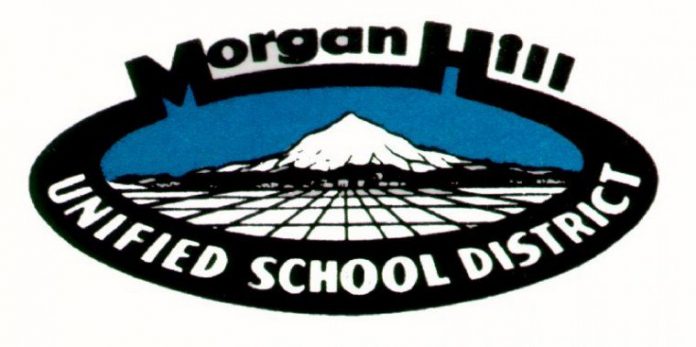”
Oh please don’t cut it. They can’t cut it. Oh, please no.
”
The news finally made it through the grapevine to Judith
Stanton, 58, a card-carrying enthusiast of the Community Adult
School in Morgan Hill.
“Oh please don’t cut it. They can’t cut it. Oh, please no.”
The news finally made it through the grapevine to Judith Stanton, 58, a card-carrying enthusiast of the Community Adult School in Morgan Hill.
Stanton learned of the proposed $100,000 budget cut – one-fourth of the adult school’s overall annual budget – Wednesday afternoon and could hardly believe her ears.
“If they drop that, that’s going to leave so many people out. People that may not have a place to go. Oh, I hope they don’t cut it,” Stanton said.
The Morgan Hill Unified School District’s budget committee recommended the school focus on retaining high school credit recovery options, which would be open to juniors and seniors hoping to graduate on time, and reduce its classes for adults to complete their General Education Development test or adult high school diploma.
At Tuesday’s school board meeting, Adult Education Principal Dennis Browne pleaded his case and presented how he would reduce his $435,000 annual budget if the board voted through the $100,000 cut. That decision may come as soon as May 10.
School board Trustee Shelle Thomas asked the district to further scrutinize exactly what may be eliminated. The budget committee proposed doing away with almost all classes for older adults and students in English as a Second Language courses, reducing school hours and cutting one of three administrative jobs, along with cutting supplies and the course catalogue.
“We have a continuation high school, so we have credit recovery on that plane. It seems like we’re doing a duplicating process if we look at Central and Adult Ed,” Thomas said. She said from her research, Morgan Hill’s Adult School was the lone option in South County to take GED courses and the only certified testing center in the region. The next closest is central San Jose or Watsonville.
Stanton found renewal at the school tucked behind Britton Middle School on Monterey Road. She never finished high school at Oak Grove in San Jose after a rough childhood. Then she got pregnant, married and raised her two daughters in Morgan Hill. After her daughters graduated from Live Oak High School, she found a new home in her 50s at the Community Adult School in 2006 to complete the 10 credits that were between her and a diploma.
“They were so thorough with people no matter what age they are,” Stanton said, adding that the one-on-one attention was invaluable. “(The teachers) were always right there, if I couldn’t remember algebra, they would help. It was just magnificent. I can’t say anything better. I will tell you, the women that I met, they were so happy. They prepared me so well. I graduated at the top of the class,” she said.
Stanton left Community Adult School with her diploma in December 2007.
“It’s going to be hard to find a job without a high school education or GED these days, so that’s why I did it.” But after some health issues and four surgeries, Stanton isn’t working.
“I would love to go tutor those kids. It would be great,” Stanton said, taking a moment. “The teachers have the stamina of 10 people. … They can’t do it. Please don’t let them do it.” Stanton said she planned to email the board trustees.
Browne said his students – 1,079 in 2010-11 – exceed the state average in Spanish and English versions of the GED or the adult high school diploma. Last year, 32 students earned the adult high school diploma, 56 passed the GED test and their test scores qualified the school for approximately $100,000 in supplemental federal funding through the Workforce Investment Act.
At the high school level, 131 enrolled high school students earned units needed for graduation – 76 students at Live Oak, 37 at Ann Sobrato, 33 at Central.
The Community Adult School, which opened in 1974 and is managed by MHUSD, is where board Trustee Ron Woolf said he left his heart. He spent five years as its principal in the 1990s.
“Personally I think some of the last cuts should have to do with adult school,” he said, referring to the low cost to the district to provide an education to the students – estimated at less than $500. “I think these are convincing numbers. We’re getting a huge bang for our buck,” Woolf said.
Over the past three years, the Adult Education budget saw a 40 percent reduction. In 2009 – after reducing the school year by several weeks and eliminating some classes including summer school – the school was able to function with a stripped-down, just basic services version.
Though labeled “basic,” the services are vital, Browne said.
“I know Dennis has said this before, that the most moving and inspiring graduation is Adult Ed.,” said board trustee Claudia Rossi.
Two-thirds of adults who enter the program are unemployed, Browne said.
“A cut to adult education is devastating. For many people Adult Ed. is their last chance. It sickens me that we would make a cut that would affect the greater community – people who have made the choice to turn their lives around. Now if they make the choice and knock on our door, it’s closed,” Rossi said.
The school of mostly portable classrooms is open about 13 hours a day, from morning until afternoon with a break, then it’s classes until 10 p.m. With the proposal of eliminating one-third of the administrative staff, hours would be reduced. Classes also reach beyond the Britton campus. They are available at convalescent homes and at substance abuse center Mariposa Lodge in San Jose.
A few enrichment courses still remain, such as Italian cooking, basic skills courses such as keyboarding, medical terminology and language classes.
Many of Browne’s students walk into the Community Adult School reading and understanding math at a fourth-grade level. The school provides a place to work on those skills, for as long as they choose in some cases, before taking the California High School Exit Exam, like Stanton did, or the GED.
“Our teachers must work on getting the fundamental skills down. We’re facing a population which really is lacking the skills to get into community college or the workplace,” Browne said.
Board President Peter Mandel explained, with a forewarning that he didn’t intend to sound insensitive, but the board has had to make more devastating choices than the proposed cuts to adult education, and so far eliminating adult education altogether isn’t part of the conversation.
“This is about weighing choices. The needs of the children against the needs of the adults. And it’s not just a question of enriching them, no, it’s survival,” board Vice President Kathy Sullivan said.
The school board meets May 10. Gov. Jerry Brown’s revision of the state budget is due in mid May. Brown’s update will determine the next steps for MHUSD.
Cuts considered for adult education
$20,000: reduction in teacher’s salary
$14,000: reduction in principal’ time by 10 percent
$54,000: reduction of one clerical position
$5,000: reduction of indirect support services
$4,000: reduction in consulting
$4,000: reduction in postage
$900: reduction of classroom supplies
$600: elimination of bilingual stipend
$500: reduction of phone charges
$200: reduction in books and reference materials
SOURCE: April 19 agenda item
Classes offered at Community Adult School
PROGRAM / NUMBER OF CLASSES / INSTRUCTIONAL HOURS PER WEEK / NUMBER OF STUDENTS ENROLLED 2010-11 / FUNDING
English as second language / 9 / 52 / 250 / 70 percent state, 30 percent federal
GED / 6 / 49 / 315 / 70 percent state, 30 percent federal
high school diploma / 6 / 68 / 290 / 90 percent state, 10 federal
Career tech / 2 / 7 / 89 / 100 percent state
Older adults / 13 / 19 / 138 / 100 percent state
Community education / 78 / varies / 773 / supported by student fees








